
– 02-06-2024 –
The Most Holy Body and Blood of Christ
Gospel Text Mark 14:12-16, 22-26
vs.12 On the first day of the Unleavened Bread, when the Passover lamb was sacrificed, his disciples said to Jesus,
Where do you want us to go and make the preparations for you to eat the passover?”
vs.13 So he sent two of his disciples, saying to them,
“Go into the city and you will meet a man carrying a pitcher of water. Follow him,
vs.14 and say to the owner of the house which he enters, ‘The Master says: Where is my dining room in which I can eat the passover with my disciples?’
vs.15 He will show you a large upper room furnished with couches, all prepared. Make the preparations for us there.”
vs.16 The disciples set out and went to the city and found everything as he had told them, and prepared the Passover.
vs.22 And as they were eating he took some bread, and when he had said the blessing he broke it and gave it to them.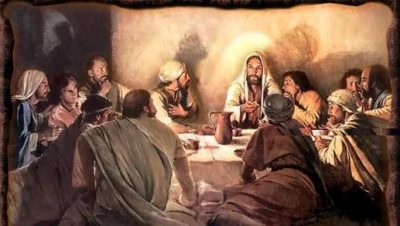
“Take it,“ he said “this is my body.“
vs.23 Then he took a cup, and when he had returned thanks, he gave it to them, and all drank from it,
vs.24 and he said to them,
“This is my blood, the blood of the covenant, which is to be poured out for many.
vs.25 I tell you solemnly, I shall not drink any more wine until the day I drink the new wine in the kingdom of God.”
vs.26 After psalms had been sung, they left for the Mount of Olives.
*******************************************************************
We have four commentators available from whom you may wish to choose . Please scroll down to the name of the commentator required.
***************************************
Michel DeVerteuil
Lectio Divina with the Sunday Gospels
www.columba.ie
Textual Comments
We can approach this passage from two perspectives. On the one hand, it can help us celebrate the gift of the Holy Eucharist as told in St Mark; on the other, we can let the special way St Mark tells the story of the Last Supper help us reflect on the symbolism of the sacrament.
Verses 12 to 16 tell the story of how Jesus prepared for the feast. The apostles asked him ,
“Where do you want us to make the preparations for you to eat the passover?“
Jesus’ answer gives us a context which will help us understand how the Last Supper fits into our own lives.
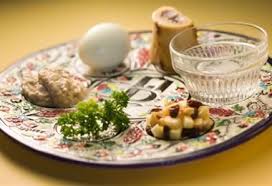 The Supper was part of a passover meal; it was not something that happened by chance. It took place in the context of the great feast. This feast has given Jesus’ Last Supper a special place in our Christian lives. We must be aware of this.
The Supper was part of a passover meal; it was not something that happened by chance. It took place in the context of the great feast. This feast has given Jesus’ Last Supper a special place in our Christian lives. We must be aware of this.
These verses also give us an insight into Jesus’ way of operating. He had friends everywhere, even in places like Jerusalem. He could rely on them. Indeed he depended on them to provide all that was needed to celebrate the great feast of the Passover.
St Mark is stressing here a version of the Last Supper which is in continuation with the account presented by the Book of Exodus. We can therefore apply some of the points made there to our celebration of the Eucharist.
In verses 22 to 24 we meditate on St Mark’s account of the events, and we avoid focusing on the other accounts, or allowing them to influence our meditation.
The author notes that Jesus took the bread “while they were eating”. This reminds us that in its original form the Eucharist had a place in people’s ordinary lives.
After saying the blessing, Jesus broke the bread, then said “take it” and added, “this is my body”. We need to reflect on this, the body of Christ which we receive in the Eucharist is his real body. It is the one we venerate in our daily lives, the one we relate with in our normal aspirations and desires, the one we meet in all our difficulties.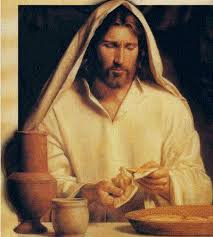
In verse 25 we see that Jesus had already “returned thanks” when he said the next words. After they had drunk the wine, he told them, “this is my blood”. Here again, we have a definite statement – this is blood of Christ. Everything we believe about his blood we can now say of the Eucharist. We relate to it as we would normally do for his blood, remembering all our instincts about what blood is intended for.
Jesus adds that this blood is that “of his covenant” and we must take some time to meditate on this. The blood of the covenant was what united people with their God and made them one.
It is said that that the blood “is to be poured out for many”. This has made a deep impression on our Christian life. It refers first of all to the many people who will be touched by the Eucharist – Christians of every denomination who feel that their God cares for them wherever they are. It also includes all of humanity; all human beings will be affected by this teaching in some way or other. It will make them more conscious that God is close to them, that he follows them in every mood and in every atmosphere.
We must look at verse 25 very specially. It is unique to St Mark. We must ask ourselves, starting from our own experience, why did Jesus say these words. They are clearly there to make the link between what happened at the Last Supper and what happens in heaven. This is an aspect of the Eucharist which we tend to neglect. Here we are invited to remember it.
Feel the drama of verse 26.
Jesus clearly wanted to link the events of the Supper with what happened afterwards. He took the decision to go out in the company of his disciples. He would do this resolutely, with two goals in mind.
The first was to confront the reality of God who was asking him to sacrifice his life on the Mountain.
The second was to confront Judas and his newly accepted adversaries from the Roman Empire. He would now meet them on the Mount of Olives.
Both these things are powerful reminders to us that we need to link what happens at the Eucharist with the reality of our lives later on. They will have many applications for the centuries of the Eucharist which followed. They should always be there to protect us against false interpretations.
Prayer reflection
Lord, on this great feast we thank you for the weekly assembly of your Church
when we gather as disciples to celebrate your Passover,
and you are present with us, saying “Take and eat, this is my body,”
then saying “This is my blood, the blood of the covenant, which is poured out for many.”
“No one takes my life from me; I lay it down of my own free will, and as it is in my power to lay it down, so it is in my power to take it up again.”… John 10:18
Lord, when things are going wrong for us, we panic,
we act as if we are no longer in control. We thank you for people like Jesus.
Even as he entered Jerusalem, knowing that there he faced the hostility of many
and that they were determined to put him to death, he remained in control of his destiny.
He knew that he had friends in that hostile city and could plan the celebration of the Passover.
Lord, a time comes in life when we have to give ourselves as spouses, parents, church ministers, public servants.
We have to say to those we serve, “Here, take it, this is my body”;
we have to say, “Here, this is my blood, the sign of the covenant between us;
I am pouring it out for you and through you for many others.“
Lord, you always seem to send us friends who stand by us in difficult times.
We quarrel among ourselves, they let us down from time to time,
but the meals we share in times of crisis seal a sacred covenant between us,
so that we can leave together for our Mount of Olives.
“There will have to be an incubation of the Christian mystery in the originality of your people, so that in the future its native voice, clearer and more sure, may join in harmony with the various voices of the universal church.” …Pope Paul VI said to the Bishops of Africa in Uganda, 1969
Lord, your will continues to be that every community of disciples should eat the body and drink the blood of your incarnate Word, so that they may experience the Covenant in a new way, never again to be content with the old, as they drink the new wine of your kingdom.
“Do you really wish to pay homage to Christ’s Body? Then do not neglect him when he is naked. At the same time that you honour him here with hangings made of silk, do not ignore him outside when he perishes from cold and in nakedness. For the one who said, ‘This is my body’ also said ‘When I was hungry, you gave me nothing to eat.'” … St John Chrysostom
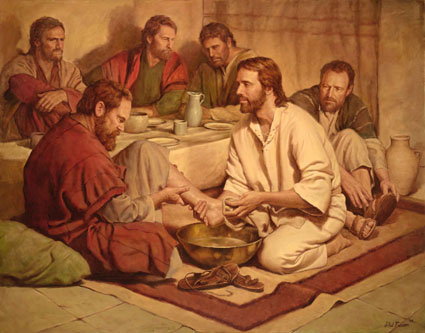 Lord, remind us always that when Jesus tells us “Take it, this is my body”
Lord, remind us always that when Jesus tells us “Take it, this is my body”
he is also speaking of the poor whom we meet on our life’s journey, and when he says, “This is my blood which is to be poured out for many,“ he is also speaking of those who suffer innocently today.
“If humankind on this planet has a future, then theology and religious institutions have to collaborate in promoting communities of prayer, understanding and redemptive praxis.” …Matthew Lamb, theologian
Lord, we pray that Church communities today may live again the experience of the Last Supper, becoming communities where members give their body and blood in the service of one another and of all men and women,
where they dream of the day when they will drink new wine in your kingdom,
and where, having sung their psalms, they will go out together to confront the world.
*************************************
Thomas O’Loughlin
Liturgical Resources for the Year of Matthew
www.columba.ie
Introduction to the Celebration
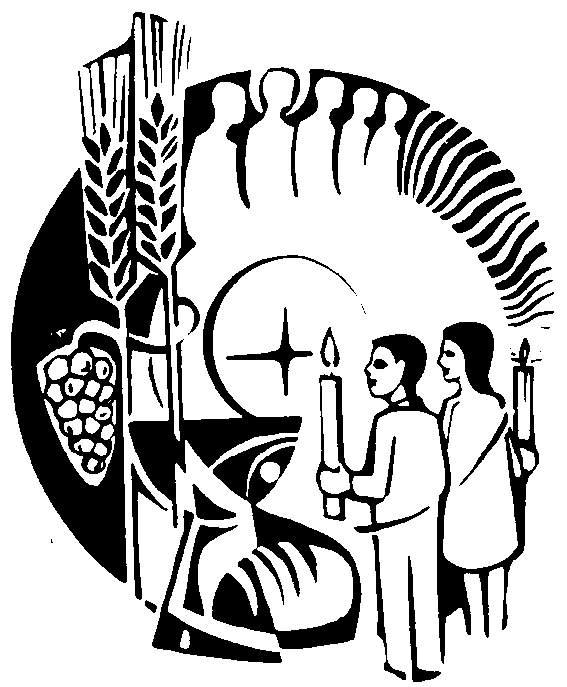 Since the very first days of the church — before St Paul had set out on his journeys or any of the gospels were written — our brothers and sisters have been gathering every week for this sacred meal. But when we routinely do anything, we often lose sight of just how wonderful it is. So today we are reflecting on just how wonderful it is to be called by the Lord to gather in his presence, to be his guests at his table, and to eat and drink from his wonderful bounty.
Since the very first days of the church — before St Paul had set out on his journeys or any of the gospels were written — our brothers and sisters have been gathering every week for this sacred meal. But when we routinely do anything, we often lose sight of just how wonderful it is. So today we are reflecting on just how wonderful it is to be called by the Lord to gather in his presence, to be his guests at his table, and to eat and drink from his wonderful bounty.
In this banquet we become one with Christ, and are transformed into being his Body, and his Blood flows in all our community’s veins, giving us the strength to be his witnesses in the world and to inherit the life that never ends.
Homily Notes
1. Words should help us to draw out the significant in our lives. Words should be the seeds of meaning within us and between us. Words should be precious in letting us see the wonder and goodness of the Father.
2. Unfortunately, words also can obscure reality for us. They can bury us under so many layers of accumulated confusions that we struggle to see what is really important. In a communications age, words can be the vehicles of disinformation like never before and can confuse the chasm that should exist between the genuine, the true, the important, and the illusions of salesmen, marketeers, and spin-doctors. Words also can so fascinate us with their own magic that we fail to move beyond them to the realities they exist to highlight for us. Words should be illuminating, but they are often like a fog, and indeed sometimes a smokescreen separating us from reality.
3. What has this to do with the Eucharist? Well, the Eucharist is a sacrament, a sign, a mystery; and as such it should convey meaning and truth and authenticity and life. And so it always involves words: words, firstly, in the actual celebration, the words of thanksgiving and prayer to the Father that justify the name of ‘The Eucharist’; and, words too that talk about what we are doing, explaining our actions to ourselves and to others.
These words of explanation and exploration of meaning 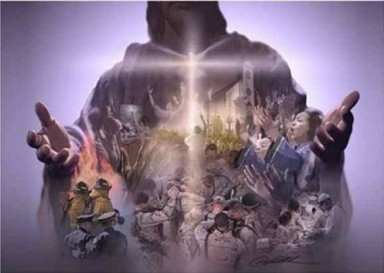 are what we call ‘theology‘. We see the process right from the start of the Christian journey: each week the community gathered and in its eating and drinking offered its prayer of thanksgiving.
are what we call ‘theology‘. We see the process right from the start of the Christian journey: each week the community gathered and in its eating and drinking offered its prayer of thanksgiving.
Then we see theologians explaining why this is significant: firstly, Paul writing to the Corinthians explaining it in terms of becoming one with the Christ, then the Didache in terms of the final banquet of the re-gathered Israel, then Mark explaining it in terms of a pre-existing understanding of the Passover (and in explaining a weekly meal in terms of an annual meal leaving a theological time-bomb that went off in Calvin’s hands 1400 years later!), then John in terms of the manna in the desert, and on and on and on until we reach some of the books on the Eucharist that are on your shelves or the pamphlets in the church’s bookrack.
4. But today we face a problem with all these words. For many the words about the Eucharist make no sense. The gathering makes no sense; its does not enhance their grasp of life or of the goodness of God.
Just think of these two facts. First, English and Welsh hierarchy figures for Mass attendance showed a fall of 130,000 between 2002 and 2005. People are the evangelical churches where the Eucharist is not considered central or significant (and which in some groups is even considered superstitious). Yet the statisticians point out that between 25% (Catholics bishops’ figures) and 33% (the evangelical missionaries’ figures) of South Americans now formally call themselves ‘Evangelicals‘ as distinct from ‘Catholics’. And this is a pattern of movement that is not confined to Latin America. When we consider the centrality of this meal, since the very first days of the church, that was the bonding force of the little groups with their Lord whose resurrection they proclaimed, then the poverty of such a jejune (literally) non-Eucharist centred theology cannot but be a cause of sadness.
5. That the Eucharist and its language are seen as meaningless, boring, or irrelevant either to life in general or the life of discipleship is, of its nature, a complex problem with many causes; and it is possible that it is beyond our ability to do anything about most of these causes. However, some parts of the problem are of our making and can be addressed.
One of these is that many celebrations obscure the basic and original structure of this gift that Jesus gave us. This obscuring takes place in that we concentrate on all the various levels of meaning that have accumulated over the centuries such that participants cannot experience the answer to that constant human question: ‘What’s this about?’ — nor can teachers give a concise explanation that might answer that question. Such accumulations of secondary issues are a normal part of human life and the constant bane of every group activity, and so common is it that we have the classic image of the’ tail wagging the dog‘ to describe the problem. In the case of the 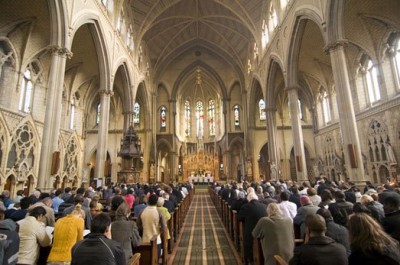 Eucharist this can take many forms:
Eucharist this can take many forms:
the celebration becomes primarily linked to the availability of a priest rather than the needs of a community;
it becomes a teaching session and prayer service plus getting Holy Communion rather than the Lord’s Banquet; the questions of who can or cannot receive become the central issue — and for a great many people this is the sole question that concerns them about the whole affair —rather than encountering the risen Christ;
the Eucharist the name for an action) becomes subsumed under the notion of Holy Communion (a commodity) or the Blessed Sacrament (an object); and for many, priests included, it is hard to think of ‘sacrament‘ as the name of an activity of a group rather than of a ‘something‘ usually had by an individual.
6. So what can one do to address the problem? The starting point is to remember that the Eucharist is the collective meal of the community of the baptised. So why not meet for the Eucharist on this day in the community hall rather than the church building? Then stand around for the whole event rather than be formally lined up in the way one might for a class or a meeting where discussion is dominant. This is a gathering, an assembly, a celebration of who we are in Christ, not a meeting to transact business. Recall the gathering at some ‘reception‘, people stand and mingle, they get to know each other, they recognise they have a common reason for being there: they are not seated in rows. Then they can gather around a single table that is the Lord’s. Words like ‘altar‘ are secondary: they derive from a second century attempt to explain what we are doing as we gather at the one table. It was basic to the message of Jesus that there was a welcome at his table, there was room there for the poor, the outcasts, the strangers, the sinners, and unloved. This gathering of those who are reconciled and given new life (i.e. the baptised) is the pattern for the whole life of the church, both now and eschatologically. So everyone should be able to gather around that table, and know they have as much right to stand there at the Lord’s invitation as the mob of concelebrating priests one sometimes sees huddling round it. A decent-sized dining table, that is still clearly recognisable as such (i.e. not covered to make it look like ‘an altar’), is ideal. It is also worth recalling those lines eucharistic Prayer I (which date from the time before we had formal churches) that say Remember your male servants and your female servants (famularum), indeed, the needs of all who are standing around.’
Then we come to the basic activity of thanking the Father in Jesus. We often recite this as if its purpose was to ask God to consecrate elements on the table (and as such it becomes the skilled work of the priest alone). Presented in that light there is little adequate answer to the question someone asked me after the Eucharist recently: why does the priest not get all this done before-hand so that it is ready to give to us after the readings? It is strange how the culture of fast-food outlets matches the old practice of ‘Mass and Communion (from the tabernacle, of course)’. So there has to be attention to the tone of the Eucharistic Prayer that it is recited as prayer directed to the Father thanking him for all he has given us in his Son. Use Eucharistic Prayer 11 as it is crisp and its theology elegant, and note that in the Missal of Vatican II there are no ‘words of consecration’, but an ‘institution narrative‘ — there lies the core of the renewed theology of the council and it has major implications for how the Eucharistic Prayer is voiced at every celebration. We are recalling the Last Supper as part of our prayer and so justifying why we are now praying in this way (this recollection format is part of every collect: we praise the Father because of something that has occurred) not pronouncing a sacral formula. After all, in the final analysis, it is the gathered people that must be consecrated to become the body and blood of Christ.
Then we come to the basic form of the meal: Jesus used a single loaf from which each received a share, and passed around a single cup from which each drank. This is the basic symbolism of this particular meal: a common life as one body which is Christ (the one loaf), and a common destiny (see Mk 10:38-9; Jn 18:11) which is in Christ (the one cup). This eating and drinking by the gathering is, of its nature, a confusing and lengthy business, but that is fine. After all we are there to engage in just that activity.
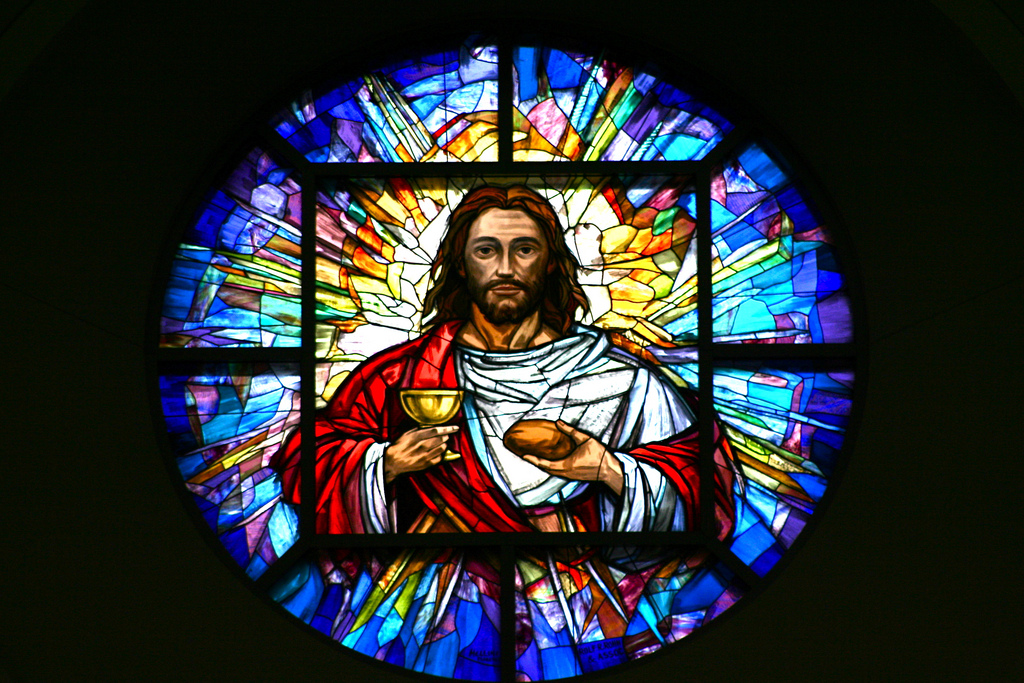 7. This is a radical way to celebrate this feast and the homily would be to point out that we are doing it this way to remind ourselves on this day of our eucharistic basics. There will be those who object, threaten to go the the next parish where the priest is sound, and indeed some who write to the bishop (or further afield) to ‘just let him know what’s happening‘. This is, in every community, a well identified and easily quantified group and so they receive a lot of attention lest they be upset; however, that other group who are just drifting away without a word are not easily identifiable and are only quantifiable through statistics. In addressing those who day by day are being lost to the Eucharist, I suspect there is some guidance in Mt 18: 12-3
7. This is a radical way to celebrate this feast and the homily would be to point out that we are doing it this way to remind ourselves on this day of our eucharistic basics. There will be those who object, threaten to go the the next parish where the priest is sound, and indeed some who write to the bishop (or further afield) to ‘just let him know what’s happening‘. This is, in every community, a well identified and easily quantified group and so they receive a lot of attention lest they be upset; however, that other group who are just drifting away without a word are not easily identifiable and are only quantifiable through statistics. In addressing those who day by day are being lost to the Eucharist, I suspect there is some guidance in Mt 18: 12-3
**********************************
Sean Goan
Let the Reader Understand
www.columba.ie
Gospel Mark 14:12-16, 22-26
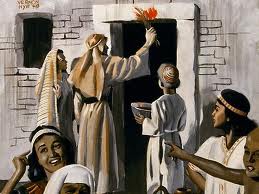 The last supper accounts in the gospels can only be properly understood against the background of the Jewish Feast of Passover. At the time of Jesus Jews all over the Roman Empire gathered to celebrate this great feast, seeing in it not only a glorious past event but also the promise of a new intervention by God when he would once again act to free them from oppression and remove the guilt of their sin.
The last supper accounts in the gospels can only be properly understood against the background of the Jewish Feast of Passover. At the time of Jesus Jews all over the Roman Empire gathered to celebrate this great feast, seeing in it not only a glorious past event but also the promise of a new intervention by God when he would once again act to free them from oppression and remove the guilt of their sin.
It is precisely this understanding that we find in today’s reading from Mark. Jesus’ action at the table is a ritual that anticipates his life-giving death. His death on the cross inaugurates a new covenant, a new relationship between God and his people. As we share the meal let us pray for the grace to live a life that is worthy of it important for us to ‘do this in memory‘ of him. As the new people of God we celebrate our identity when we come together for Eucharist. We give thanks for who we are and all that God has done for us.
Reflection
 To understand the Eucharist we do not need to be experts in theology nor in the rituals of ancient Israel. Jesus left us the symbols of bread and wine as realities that speak to us of nourishment and celebration. He gave us these realities the night before lie died as he shared a meal with his dearest friends in the world. As on the next day he would give his life on the cross, so in this meal he gave himself to them, a lasting gift of love and friendship that only God could give. By participating in it we commit ourselves to the new and everlasting covenant, a covenant which recognises that we are brothers and sisters of Jesus and children of the one Father. As we share the meal let us pray for the grace to live a life that is worthy of it.
To understand the Eucharist we do not need to be experts in theology nor in the rituals of ancient Israel. Jesus left us the symbols of bread and wine as realities that speak to us of nourishment and celebration. He gave us these realities the night before lie died as he shared a meal with his dearest friends in the world. As on the next day he would give his life on the cross, so in this meal he gave himself to them, a lasting gift of love and friendship that only God could give. By participating in it we commit ourselves to the new and everlasting covenant, a covenant which recognises that we are brothers and sisters of Jesus and children of the one Father. As we share the meal let us pray for the grace to live a life that is worthy of it.
***************************************
Donal Neary SJ
Gospel Reflections
www.messenger.ie/bookshop
Gift for all Time
The main feast of the Eucharist is Holy Thursday. The Corpus Christi feast was originated partly to stress the joy of the Eucharist which might be somewhat lost in the more sombre Holy week. While Holy Thursday also includes the washing of the feet, this feast is simply to commemorate the gift of Jesus in the Eucharist.
 The body and blood of Jesus is the life of the Lord, ‘given to us’. This gift is for all times. At scenes where Jesus feeds the people in the gospel, much is always left over. This is a sign of wanting to give his love for the life of the world for all time. This live, to death and resurrection, is commemorated in a real way at every Mass.
The body and blood of Jesus is the life of the Lord, ‘given to us’. This gift is for all times. At scenes where Jesus feeds the people in the gospel, much is always left over. This is a sign of wanting to give his love for the life of the world for all time. This live, to death and resurrection, is commemorated in a real way at every Mass.
When a priest or minister gives communion, we are aware of the special moment this is for so many people. It is a moment of asking for help in life, for peace of mind, for the presence of the Lord. At a time of illness or bereavement we may recall the lift of grace when communion was brought to us. On our side it is our promise also to share the Lord in different ways of love in our own lives.
Remember a time when receiving Communion
bright you peace, joy or comfort.
It is right and just O Lord to give you thanks
for the gift of yourself in the Eucharist.
***************